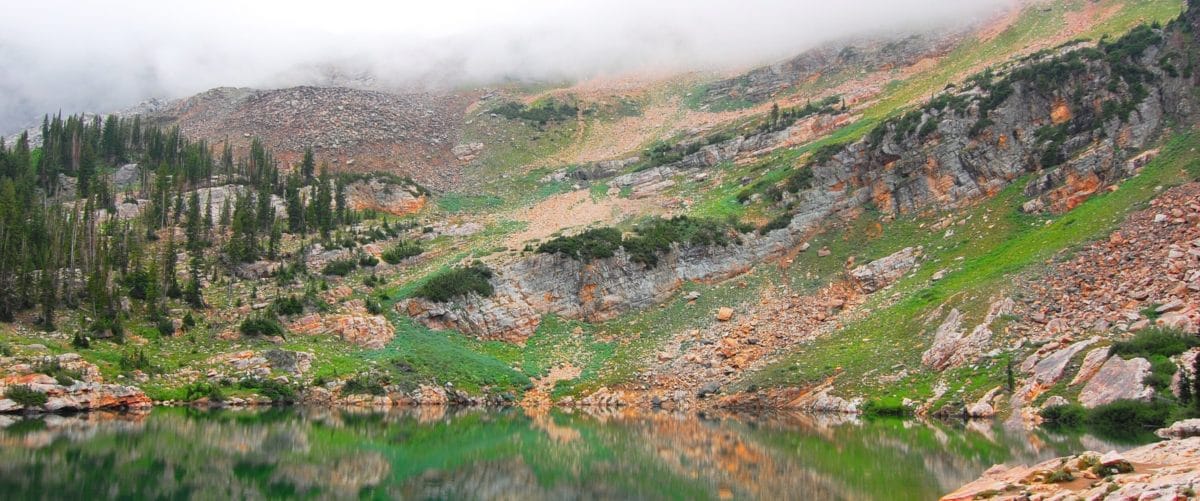The longstanding ability of Utah cities to regulate land use in mountain watersheds they tap for drinking water could come to an end, under a bill filed in advance of this year’s session of the Utah Legislature.
Rep. Mike Noel’s House Bill 135 targets a legal concept that dates back to Utah’s settlement era, enabling Salt Lake City to restrict dogs and livestock and some land-disturbing activities far up the Wasatch canyons that supply water to residents and businesses along the Salt Lake Valley’s east side.
Cities’ so-called “extraterritorial jurisdiction” to regulate land-use outside their boundaries has long been a sore point for several property owners in Little and Big Cottonwood canyons, but Noel’s proposed fix could create more problems than it solves, according to some of the state’s top environmental regulators.
Speaking at Tuesday’s Executive Water Task Force meeting, officials with the Department of Environmental Quality said HB135 shifts the burden of ensuring drinking water standards from cities to the DEQ, which is not equipped for the task.
“Although we do have the authority to set standards for water quality, we don’t have the authority to administer the kinds of controls municipalities use to protect their source water,” said Erica Gaddis, director of DEQ’s Division of Water Quality. “We are not a land management agency and we don’t want to be a land management agency.”
Noel, a Kanab rancher who runs a water district, did not respond to several interview requests sent via phone, text and email.
In past meetings, Noel has complained that Salt Lake City has exercised its authority in ways that thwart development to the detriment of private property rights, particularly in Big Cottonwood Canyon’s Cardiff Fork. Several Cottonwood land owners have brought their concerns to the Legislature’s Commission for the Stewardship of Pubic Lands, seeking relief from rules imposed by a distant city.
“My major concern is private property rights and how we impact those rights through extraterritorial jurisdiction with terms like ‘quality growth,’” Noel said at an Oct. 19 meeting. “I always want to look at who are the players behind these. In many cases, the players are the ones who stand to gain financially. We pick winners and losers, government seems to do, and I think it’s wrong.”
The 2018 legislative session convenes Jan. 22.
Property-rights advocates object because the rules mean Salt Lake City leaders can enact and enforce restrictions on land owners who have no recourse at the ballot box.
The public-lands stewardship commission had directed the Utah Quality Growth Commission to study the issue and provide recommendations. But that group, co-chaired by Salt Lake City council member Erin Mendenhall, concluded it lacked expertise to comment. The panel urged the Legislature to review extraterritorial jurisdiction and consider offering financial relief to property owners who have not be able to develop within restricted watersheds.
Noel, however, didn’t wait for that review before filing his bill. His proposal would revoke cities’ jurisdiction outside their boundaries and authorize the DEQ, working with local health departments, to set up water standards protective of human health and for construction and operation of city waterworks.
His bill would also require cities exceeding 100,000 residents to provide a “highway” for driving cattle, as well as sheep, hogs and horses through town.
No mention of goats or llamas, but that last provision had water task force members scratching their heads since there is little if any grazing on the lands outside the six affected cities, all clustered along the Wasatch Front. Noel did not attend the meeting, although his bill was a key part of the agenda.
A supporter of Noel’s bill, former Salt Lake County mayoral candidate Dave Robinson, said the city 1991 watershed ordinance is redundant since the canyon watersheds are protected by federal, state and county rules.
“You have three layers ahead of the municipalities,” Robinson said. “It’s not a matter if we remove a municipality you remove pollution control. You have those safeguards there.”
DEQ director Alan Matheson said his agency was not consulted about the proposal, which he read for the first time this week. But DEQ division directors were worried about stripping the tools Utah cities need to meet federally-set drinking water standards.
“Striking this language impacts every single municipality, not just Salt Lake City. We’ve got significant amounts of surface water generated outside of the jurisdiction boundaries,” said Marie Owens of the state Division of Drinking Water.
Advocacy group Alliance for a Better Utah said the measure is “pandering to the interests of a few key people rather than helping the general public.”
Read the entire article by Bryan Maffly here

